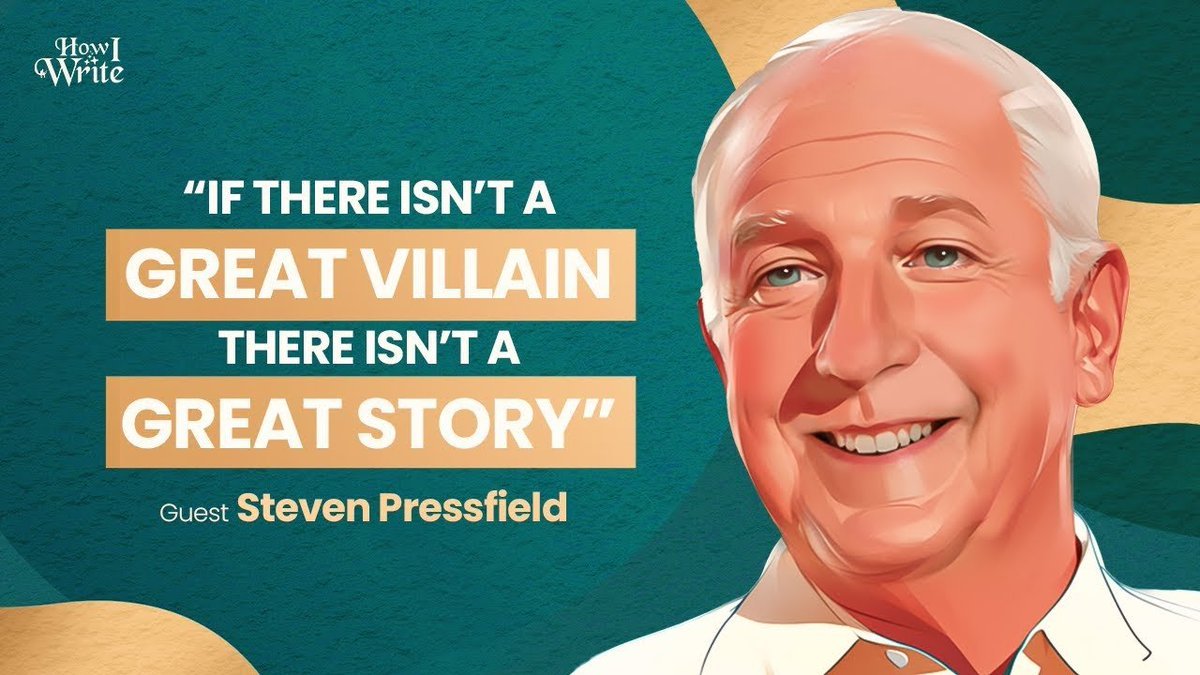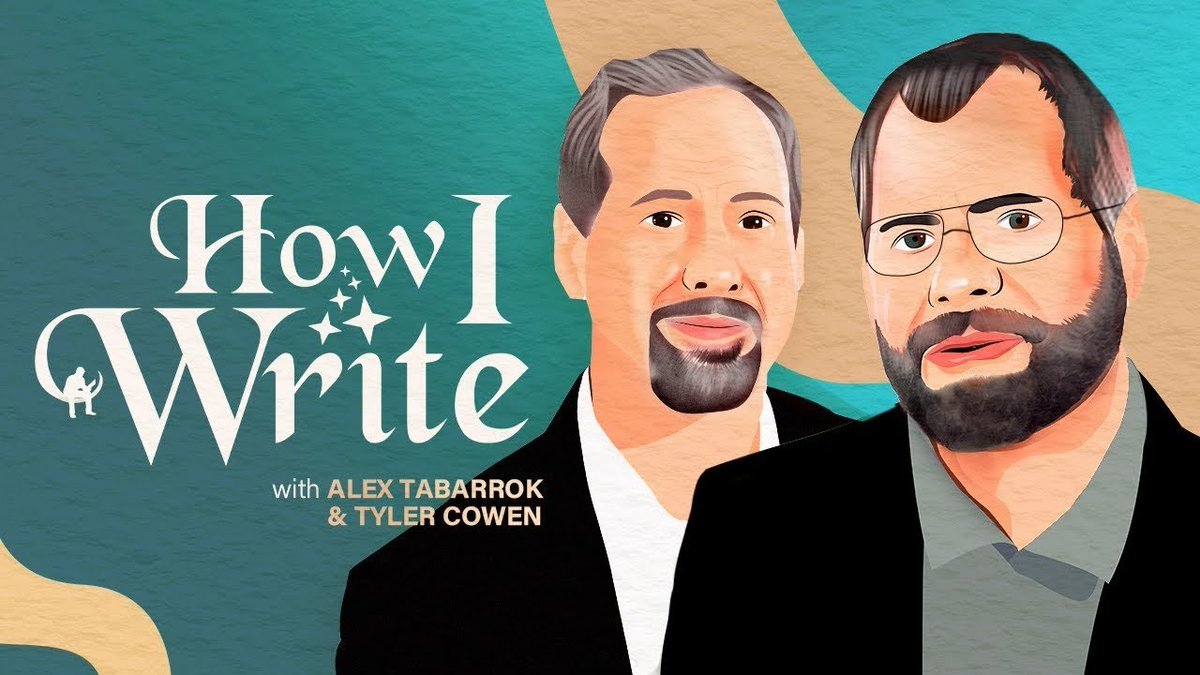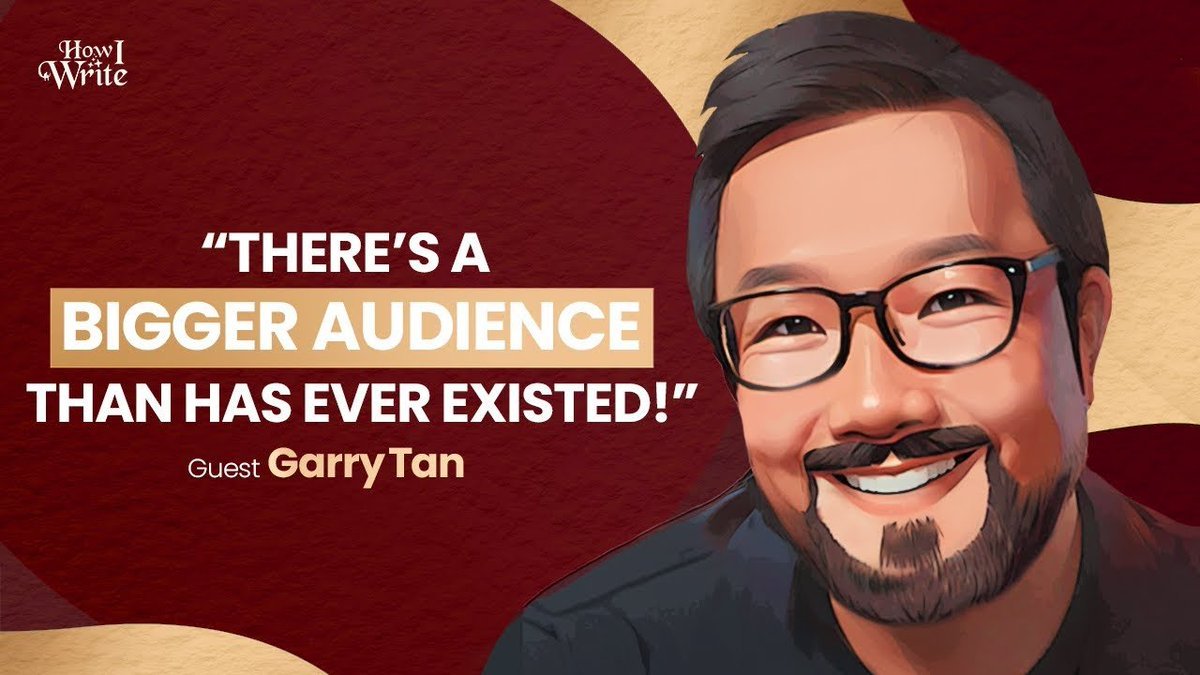



Saved by Lael Johnson and
A Big List of Writing Advice From the How I Write podcast: 1. Start with one brave sentence and see where it goes. (Morgan Housel | @morganhousel) 2. Discipline beats talent when talent isn’t disciplined. (Steven Pressfield | @SPressfield) 3. You can make a career out of being curious. (Tyler Cowen | @tylercowen) 4. The best time to write about an idea is when it first strikes you. (Sheehan Quirke | @culturaltutor) 5. Teach the reader something new as fast as you can. (Garry Tan | @garrytan) 6. Don’t let the size of the internet stun you into inaction. Most of the content out there sucks. Lenny: “If you could just do something better than what's out there, you can rise above the noise.” (Lenny Rachitsky | @lennysan) 7. No one wants a lecture. Everyone wants a story. (Morgan Housel | @morganhousel) 8. The internet rewards people who have the courage to be their true selves, no matter how weird they may be. (Garry Tan | @garrytan) 9. You can’t just sit in an empty room and write. You have to engage with the world and notice things. (Sheehan Quirke | @culturaltutor) 10. The committed writer needs an empty schedule. (Steven Pressfield | @SPressfield) 11. Stay a little unpredictable with what you write about. (Tyler Cowen | @tylercowen) 12. Short words have long legs. The worst thing you can do is alienate people using jargon. All good communication incites action, which means you have to use words people are familiar with. (Garry Tan | @garrytan) 13. Everyone should write. Why? Because everyone is full of ideas they’re not aware of. This means they’re also unaware of the value of their ideas, and this value can only be unlocked via writing. (Morgan Housel | @morganhousel) 14. The world’s most successful people tend to be extremely curious, and if you can tell them something interesting and true they didn’t know, you have their attention. (Garry Tan | @garrytan) 15. Keep a notebook because great ideas disappear as quickly as they appear. (Sheehan Quirke | @culturaltutor) 16. Writers tend to put more pressure on themselves as their audience grows. They get timid and self-censor. But you have to resist that. You know you're doing it right if you're giggling. (Tyler Cowen | @tylercowen) 17. Creative work is not a selfish act or a bid for attention. It's a gift to the world and every being in it. Don't cheat us of your contribution. (Steven Pressfield | @SPressfield) 18. People don’t remember books; they remember sentences. (Morgan Housel | @morganhousel) 19. What good design is and isn’t: “Good design is not picking colors and making it pretty. Good design is removing steps, understanding motivations, making it clearer, more navigable, faster, easier... it is how it works, not how it looks.” (Garry Tan | @garrytan) 20. Leave out the parts that readers tend to skip. (Morgan Housel | @morganhousel) 21. What should you write about? Look for the intersection of a Venn-Diagram with three different circles: what the audience wants to hear, what you're excited to write about, and what's good for your brand. (Mark Manson | @IAmMarkManson) 22. When something doesn’t make sense to you, it probably doesn’t make sense to a million readers. When something seems kind of interesting to you, it’s probably kind of interesting to a million readers. (Derek Thompson | @DKThomp) 23. When considering a writer's potential for success, most people under-value stamina. (Tyler Cowen | @tylercowen) 24. Big words mask little thoughts. (Morgan Housel | @morganhousel) 25. Until you’ve written 100 posts, you'll have no clue what you enjoy writing about or what people enjoy reading from you. (Mark Manson | @IAmMarkManson) 26. Ignorance and arrogance are the artist and entrepreneur’s indispensable allies. They help you go through patches where a “sane” person would quit. (Steven Pressfield | @SPressfield) 27. Writing is an efficiency game. Whoever says the most stuff in the fewest words wins. (Morgan Housel | @morganhousel) 28. The returns to thick skin are going up. (Tyler Cowen | @tylercowen) 29. Say the things you always wished somebody would say, but nobody has. (Mark Manson | @IAmMarkManson) 30. Every great scene in theater is a fight. Think of your favorite scene from your favorite movie. Did the characters agree on everything? Nope. Writing comes alive when there's conflict hanging in the air. (Derek Thompson | @DKThomp) 31. The internet is the greatest friend writers have ever had. No editors, no centralized media houses, no gatekeepers. You, your unique idea, and your readers. That’s it. You don’t need anyone’s permission or approval. Just the courage to publish. (Garry Tan | @garrytan) 32. Many successful people are like good oil scouts: They spend a lot of time searching for their space, and then they drill deep when they find the right niche. (Derek Thompson | @DKThomp) 33. The Power Law of Success: if you do 30 things, 29 of them are going to be irrelevant. One of them will completely change everything. Keep writing—volume is your friend. (Morgan Housel | @morganhousel) 34. Repetition is the God particle of music. Rhythm repeats within songs. Verses repeat, and the chorus repeats too. There's no music without repetition. If you want to make your writing musical, add repetition. (Derek Thompson | @DKThomp) 35. What do people ask you about that you don't have a great answer to? Viral essays are hiding inside this question. If people keep asking you the same question and nobody's written the answer, take on the challenge yourself. (Lenny Rachitsky | @lennysan) 36. Get to the point faster by asking yourself: Is this first paragraph even necessary? How about the second? And the third? (Mark Manson | @IAmMarkManson) 37. Outlining is an excuse to avoid writing. Don’t outline. Just write. Tyler Cowen prefers to get straight to working out the problems, which happens better in prose than bullet points. (@tylercowen) 38. Ambition is precious: “Ambition is the most primal and sacred fundament of our being. To feel ambition and to act upon it is to embrace the unique calling of our souls." (Steven Pressfield | @SPressfield) 39. If you're stuck on a piece, go for a walk. (Morgan Housel | @morganhousel) 40. When in doubt, make it useful: If you want to be widely read, try to solve people’s problems. (Lenny Rachitsky | @lennysan) 41. The better the idea, the easier it is to write. So if you have writer's block, maybe you just have a bad idea. (Mark Manson | @IAmMarkManson) 42. The Blitzkrieg Method: During your first draft, you will be blasted by anxieties from all sides. If you slow down to deal with them, it’s over. He recommends the Blitzkrieg Method instead—if you come to an obstacle, go around it. Forward momentum is everything in a first draft. Get words onto the page. (Steven Pressfield | @SPressfield) 43. All interestingness arises from the presence of conflict. To make academic ideas interesting, find the conflict…the point of tension. (Derek Thompson | @DKThomp) 44. Pros start writing before they're inspired. Amateurs wait until after they're inspired to start writing. Or, in Mark's words: "Starting creates the mood, not the other way around." (Mark Manson | @IAmMarkManson) 45. Online learning is a two-way exchange. Read and write. It's a dialogue, not a monologue. (Tyler Cowen | @tylercowen)




Saved by Lael Johnson and